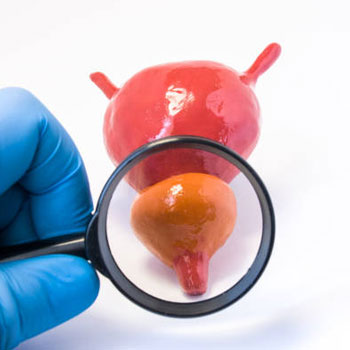What is Prostate Enlargement?
Prostate enlargement, medically known as Benign Prostatic Hyperplasia (BPH), is a common condition that affects men as they age. The prostate is a small, walnut-sized gland located just below the bladder and surrounds the urethra—the tube that carries urine out of the body. Its primary function is to produce fluid that nourishes and transports sperm.
As men grow older, the prostate gland tends to grow in size. This enlargement is usually non-cancerous, but it can lead to uncomfortable urinary symptoms. Prostate enlargement is not the same as prostate cancer, although the symptoms may sometimes overlap.
Causes of Prostate Enlargement
The exact cause of BPH is still not fully understood, but age and hormonal changes play a significant role. Testosterone and dihydrotestosterone (DHT) are hormones that affect prostate growth. As men age, the balance of these hormones changes, which may stimulate the prostate cells to grow excessively. Family history, obesity, and a sedentary lifestyle can also contribute to the risk.

Common Symptoms of Prostate Enlargement
Prostate enlargement can vary in severity. Some men may experience mild symptoms, while others may face more serious issues. Common signs include:
- Frequent urge to urinate, especially at night (nocturia)
- Difficulty starting urination
- Weak urine stream or a stream that stops and starts
- Sensation of incomplete bladder emptying
- Dribbling at the end of urination
- Urgency to urinate
In severe cases, the enlarged prostate can completely block the flow of urine, leading to urinary retention—a medical emergency.
Diagnosis of Enlarged Prostate
Diagnosis typically begins with a physical examination and review of medical history. A digital rectal exam (DRE) is commonly performed to assess the size and shape of the prostate. Additional tests may include:
- Urine tests to rule out infection
- Prostate-specific antigen (PSA) blood test
- Ultrasound to measure prostate size
- Uroflowmetry to evaluate urine flow rate
- Post-void residual volume test
Treatment Options
The treatment for prostate enlargement depends on the severity of symptoms and the impact on daily life. Mild cases may be managed with lifestyle changes, such as reducing caffeine and alcohol intake, limiting fluid consumption at night, and regular exercise.
For moderate to severe symptoms, medical treatment may be required. Alpha-blockers and 5-alpha reductase inhibitors are commonly prescribed to relax prostate muscles and shrink the gland. In some cases, minimally invasive procedures or surgery might be recommended to remove or reduce the prostate tissue that is blocking urine flow.
Looking for Prostate Enlargement Treatment in Gudivada?
If you're experiencing urinary difficulties and suspect prostate enlargement, it's essential to consult a urology specialist. Dr. Pavan Ganesh Yalavarthi offers expert care and personalized solutions for prostate enlargement treatment in Gudivada. With a thorough diagnosis and tailored treatment approach, patients can find relief and improve their quality of life.
Early detection and intervention can prevent complications such as bladder damage or kidney problems. Do not ignore the signs. If you're facing symptoms related to prostate issues, timely consultation can make all the difference.
Prostate enlargement is a common yet manageable condition. Understanding the symptoms and seeking timely medical advice ensures effective treatment and a healthier life. Men over the age of 50 should regularly monitor their prostate health and be aware of any changes in urinary patterns. For trusted and compassionate care, consider scheduling a consultation for prostate enlargement treatment in Gudivada with Dr. Pavan Ganesh Yalavarthi today.
